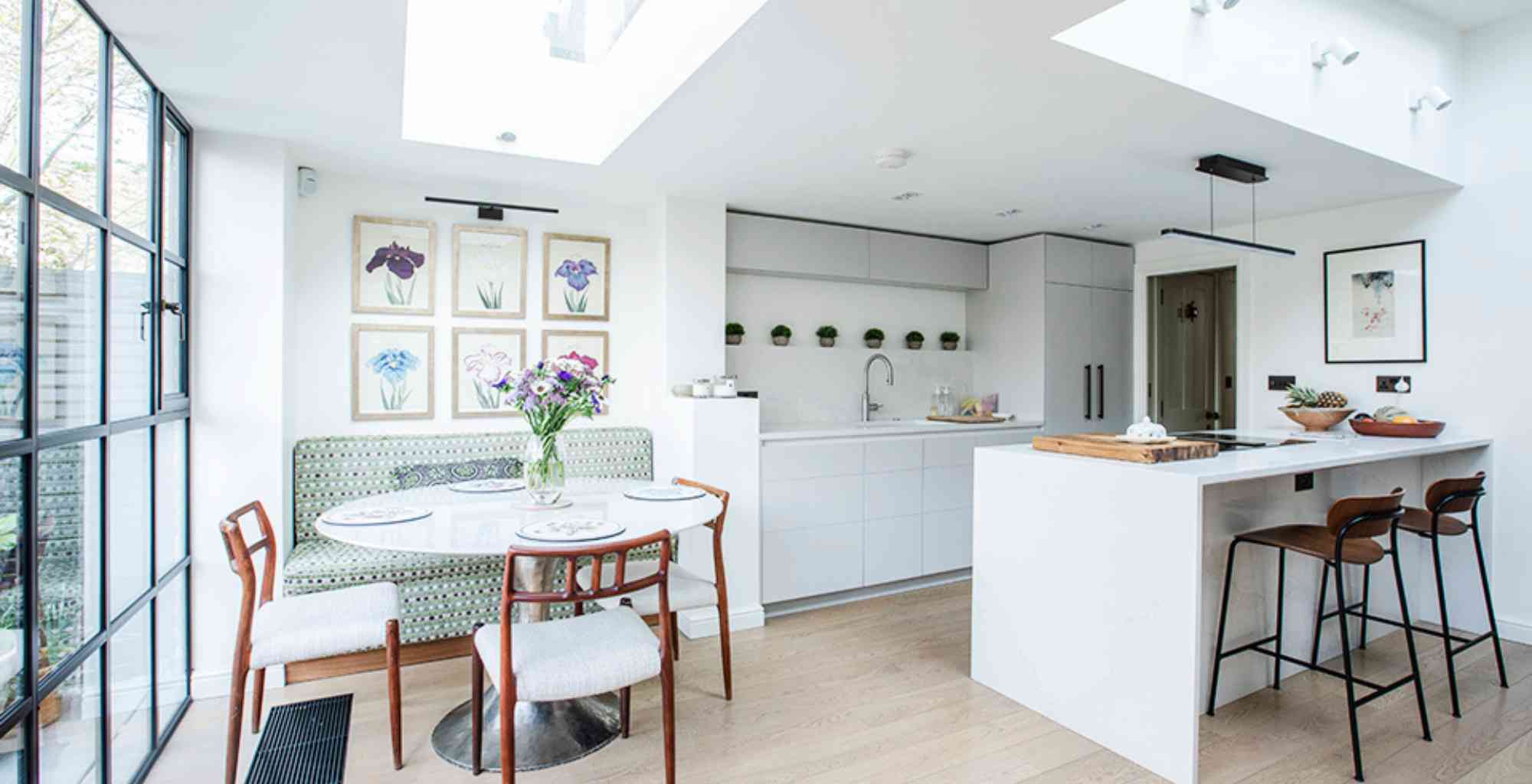What are the signs you have found the perfect house?
Finding the perfect house means different things for different people. There is no one-set criteria. Some might focus on the location, while others prioritise outside space and the number of bedrooms. Whatever the reason, there are a few signs that suggest you’ve found the perfect place.
As estate agents we can offer guidance to buyers who are grappling with knowing if a property is ‘the one’.
Here are the tell-tale signs that you may have found the perfect house:
The must-haves
Discovering the ideal home often hinges on whether it satisfies your criteria, the non-negotiable if you will. Imagine a checklist encompassing key factors like location and its surrounding community, proximity to amenities like schools, shops and public transport, along with the house’s size, its architectural blueprint and the practical aspects like the number of bedrooms and bathrooms. When a house aligns seamlessly with your list, it’s hinting that you might have stumbled upon your dream place.
Another tell-tale sign is the instantaneous, almost magical connection you feel with a house. It can be the unique way its layout flows, the distinct architectural character or just the intangible atmosphere it exudes – something about the place resonates deeply with you. Stepping into a house and effortlessly visualising your life unfolding there, from daily routines to special moments, is a profound indicator that this house might just be ‘the one’.
Understanding your needs and wants
When searching for the ideal house, have a clear understanding of your specific needs and preferences. Such clarity acts as a filter, helping you to zero in on properties that truly align with what you’re looking for. Knowing your priorities – whether it’s location, size, layout or amenities – allows you to make a well-informed decision.
House hunting checklist
It can be useful to have a checklist of your absolute must haves versus those points that are ‘likes’ rather than needs. Having an idea of the points on which you will not comprise will enable you to be more pragmatic whilst searching for a home.
Where do you want to live?
‘Location, location, location’; it’s the mantra often used by people searching for a home. And they’re not wrong starting with the ideal postcode that meets your needs is a wise first step. For some it might be hoping to be within a particular school catchment, for others the walk to the nearest station that is paramount. Location plays an important role and is something a buyer should be clear on when searching for a home.
Why are you moving?
What’s driving your move? Is it more space? If that’s the number one factor, then square footage will play an important role in finding your perfect house. Maybe you want a bigger garden, in which case you’ll be looking for somewhere with outside space. Perhaps it’s a renovation project that allows you to put your own stamp on the property. Whatever the reason, this is usually one of the primary drivers helping you find your ideal house.
What don’t you want?
When compiling your home-hunting checklist, don’t forget to factor in your deal-breakers – those absolute no-gos for your new home. Picture the things you’d steer clear of: a cramped kitchen, a house bustling with traffic noise or a place scant on storage solutions. Acknowledging these non-negotiables is just as crucial as pinpointing your must-haves.
What’s your budget?
When purchasing a home, the aim is to stay within your budget. Overextending financially can lead to the distress of struggling with monthly mortgage payments, as well as other bills. A key indicator of the right house is one that comfortably fits your financial plan, ensuring peace of mind along with a new home.
The Emotional Connection: Gut Feeling
Your gut feeling about a house is often a strong indicator. Sometimes, what we sense instinctively takes a while for our rational mind to catch up with. If a house feels warm and welcoming, it’s likely got features that resonate with you.
As much as a house can feel right, it can also give you a sense of negativity. As with many decisions in life, your gut feeling is likely to play a role when choosing a home to buy.
It’s believed that emotions often have a logical basis, so understanding what specifically draws you to a house can really clarify what you’re looking for in your ideal home.
How will you know if it’s the perfect house?
Below are some of the most commonly asked questions and thoughts of buyers seeking their next home.
What are the signs of a good house?
It all depends on what you’re looking for, but for many, it includes things like location, space, both indoor and outdoor, as well as number of bedrooms.
How do you know if a house is the one for you?
Sometimes it’s a gut feeling, but it might be that it ticks off every box on your wish list. Likewise, it could be that it fits perfectly with your budget.
What are the characteristics of a good house?
Plenty of space, natural light and outdoor space all contribute to the characteristics of a good house.
Thinking of Moving?
Your dream home just feels right. Sometimes a significant factor like location and space; other times it’s a feeling that strikes all the right chords.
Horton and Garton appreciate that every move is fuelled by individual motivators, preferences and priorities are unique and any advice should reflect this. Working closely with vendors and buyers, we aspire to offer considered advice to those moving house. Get in touch to speak to a member of our team.





